With increasing foreign investment flows and a stable economic situation, Vietnam is poised to consolidate its position and seize the opportunity to become a more important link in the global production chain.
Vietnam is ready to be an important link in the global production chain.
With increasing foreign investment flows and a stable economic situation, Vietnam is poised to consolidate its position and seize the opportunity to become a more important link in the global production chain.
 |
| Meir Tlebalde, General Director of Sunwha Kiri Consulting Vietnam. |
Chance of repeat
The re-election of Donald Trump as US President is expected to further boost tax increases and supply chain diversification. For Vietnam, this is a similar opportunity to 2018, when the US-China trade war helped exports to the US increase by 30%. This trend is expected to repeat as Vietnam can benefit from its strategic position in global trade and an increasingly expanding investment landscape.
Vietnam recorded growth in foreign investment capital in 2024, attracting more than US$27.26 billion as of October, up 1.9% year-on-year. This increase reflects Vietnam's dynamic and competitive investment environment, which continues to attract interest from around the world.
Manufacturing and processing was the largest recipient of foreign investment at US$17.1 billion, followed by real estate at US$5.32 billion. Singapore emerged as the leading investor in Vietnam, with a total investment of US$7.79 billion. This strong inflow of capital is a testament to Vietnam’s attractiveness to global businesses looking for a stable and cost-effective alternative to traditional manufacturing hubs.
To continue to gain momentum, Vietnam has been reforming its legal system to reduce bottlenecks and increase efficiency in the investment process. By decentralizing licensing processes and amending the Law on Investment under the Public-Private Partnership (PPP) model, the Government is working to simplify barriers and create a more friendly environment for foreign investors.
The above reforms, together with the entire government and business system, will contribute to disbursing significant capital flows and accelerating infrastructure development tasks, promoting economic growth in many different areas in the coming time.
Vietnam’s openness to international trade and investment has long been a cornerstone of its economic strategy, supported by major trade agreements such as the Comprehensive and Progressive Agreement for Trans-Pacific Partnership (CPTPP), the EU-Vietnam Free Trade Agreement (EVFTA) and the Regional Comprehensive Economic Partnership (RCEP). These agreements make it easier for exporters to access key markets, helping Vietnam excel in industries such as machinery, textiles and agriculture.
However, challenges and barriers remain, including foreign ownership limits in sectors such as oil and gas, stringent licensing regulations in healthcare and information technology, and inefficiencies in customs procedures. Despite these barriers, Vietnam continues to attract investment through policies such as import duty exemptions, accelerated depreciation, and support for research and development activities.
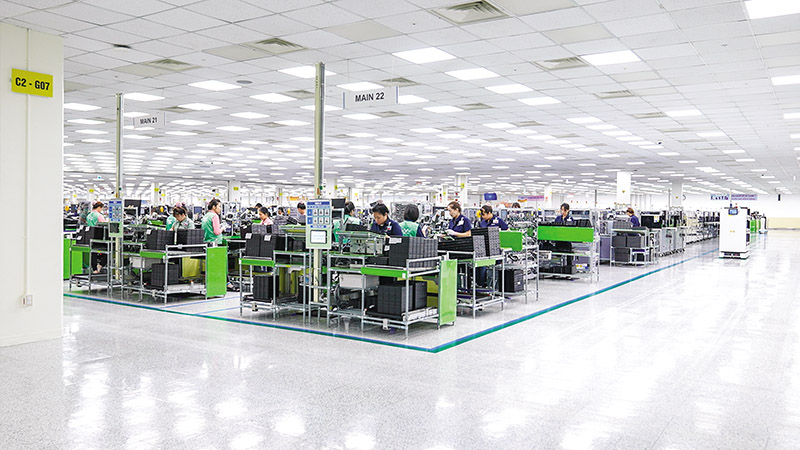 |
| Vietnam is becoming a stronghold for building low-cost manufacturing facilities, with favorable tax policies and a young, highly skilled workforce. Photo: Duc Thanh |
Competitive advantage
Vietnam’s competitive advantages for foreign investors are manifold. Vietnam is a hotbed for low-cost manufacturing, with a favorable tax regime and a young, highly skilled workforce. These factors have encouraged global giants such as Samsung and Foxconn to expand production there. Such investments not only boost the economy, but also enhance Vietnam’s position as a key player in the global supply chain.
In addition to manufacturing, Vietnam is becoming an attractive destination for high-tech industries, especially semiconductors. By 2024, US-based semiconductor companies have committed to invest $8 billion in the Vietnamese market, signaling the country’s growing role in the global technology ecosystem. Vietnam’s semiconductor strategy, which includes financial incentives, research and development support, and the establishment of a national steering committee, aims to make Vietnam a leader in this important industry by 2050.
However, the implementation of the Organisation for Economic Co-operation and Development (OECD) global minimum tax represents a potential challenge as it could increase the financial burden on multinational companies unless Vietnam introduces other mitigation measures.
Vietnam’s mergers and acquisitions (M&A) market is also gaining momentum thanks to growing interest in industrial real estate, logistics and renewable energy. In the first nine months of 2024, M&A activity reached US$3.5 billion, supported by infrastructure development and e-commerce expansion.
Companies such as Alibaba are investing in data infrastructure projects, reflecting the growing importance of the digital economy. Similarly, renewable energy projects continue to attract significant foreign investment, in line with Vietnam’s commitment to sustainable development and the transition to clean energy sources.
To support the growing investment climate, Vietnam has introduced a series of policies to enhance its competitiveness. Accordingly, the Investment Law 2020, which will take effect in 2021, focuses on high-tech industries, renewable energy and infrastructure development. These sectors benefit from a range of incentives, including land use incentives, land rent reductions and import tax exemptions.
In addition, upcoming changes under the Land Law 2024 and the Real Estate Business Law 2023 will provide foreign investors with more equal operating rights than before, simplify land acquisition processes and increase transaction transparency.
Changing investment attraction strategy
A notable shift in Vietnam’s investment attraction strategy is the shift from traditional tax exemptions to cost-based incentives, such as support for research and development and accelerated depreciation. This shift is driven by the need to comply with global tax standards while maintaining Vietnam’s attractiveness as an investment destination. The government’s plan to establish an Investment Support Fund further underscores its commitment to promoting economic growth by financing infrastructure development, fixed assets and human resource training.
 Samsung’s recent $1.8 billion investment in a new OLED factory in Bac Ninh and Foxconn’s $551 million commitment to projects in Quang Ninh are clear signs of major companies’ confidence in Vietnam’s potential to become a manufacturing hub.
Samsung’s recent $1.8 billion investment in a new OLED factory in Bac Ninh and Foxconn’s $551 million commitment to projects in Quang Ninh are clear signs of major companies’ confidence in Vietnam’s potential to become a manufacturing hub. 
However, it must be acknowledged that, despite its many strengths, Vietnam still faces certain barriers that can deter potential investors. Foreign ownership limits in strategic sectors such as banking, telecommunications and energy are a major challenge.
Furthermore, the complex approval process for large-scale projects (which often require review by the Prime Minister or the National Assembly) leads to delays in project implementation and progress. The implementation of a global minimum tax adds another layer of complexity, as companies must apply a 15% tax rate, along with additional taxes to comply with global standards.
However, Vietnam’s proactive approach to reform and commitment to creating a business-friendly environment are paving the way for sustainable investment growth. By balancing national security interests with economic openness, Vietnam is building a solid foundation to attract foreign investment while protecting its long-term economic stability.
Looking ahead, Vietnam’s diversified economy, skilled workforce, and strategic trade agreements are helping it weather global uncertainties and capitalize on new opportunities. As companies continue to look for warehousing solutions outside of China to diversify their supply chains and production, Vietnam is an attractive proposition, combining cost efficiency with a strong policy framework.
Vietnam’s investment landscape in 2024 reflects its ability to adapt and thrive in an increasingly competitive global marketplace. With ongoing reforms, targeted incentives and strategic investments in high-growth sectors, Vietnam is poised to cement its position as a dynamic and forward-looking investment destination. As the world faces changing economic and geopolitical issues, Vietnam is poised to take on a key role in the global economy.
Source: https://baodautu.vn/viet-nam-san-sang-la-mat-xich-quan-trong-cua-chuoi-san-xuat-toan-cau-d231452.html



![[Photo] Russian military power on display at parade celebrating 80 years of victory over fascism](https://vphoto.vietnam.vn/thumb/1200x675/vietnam/resource/IMAGE/2025/5/9/ce054c3a71b74b1da3be310973aebcfd)
![[Photo] Magical moment of double five-colored clouds on Ba Den mountain on the day of the Buddha's relic procession](https://vphoto.vietnam.vn/thumb/1200x675/vietnam/resource/IMAGE/2025/5/9/7a710556965c413397f9e38ac9708d2f)
![[Photo] Prime Minister Pham Minh Chinh chairs a special Government meeting on the arrangement of administrative units at all levels.](https://vphoto.vietnam.vn/thumb/1200x675/vietnam/resource/IMAGE/2025/5/9/6a22e6a997424870abfb39817bb9bb6c)

![[Photo] General Secretary To Lam and international leaders attend the parade celebrating the 80th anniversary of the victory over fascism in Russia](https://vphoto.vietnam.vn/thumb/1200x675/vietnam/resource/IMAGE/2025/5/9/4ec77ed7629a45c79d6e8aa952f20dd3)
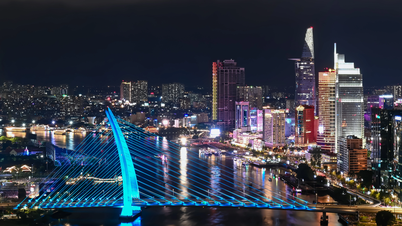












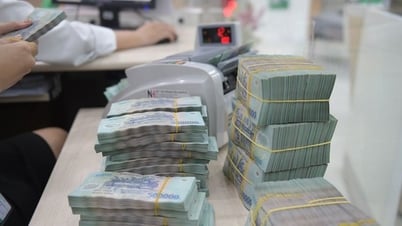

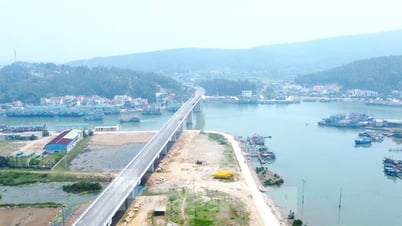











































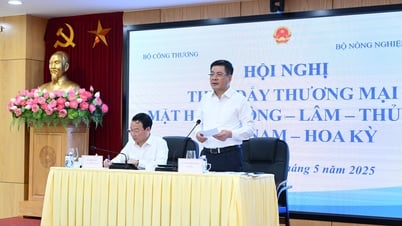



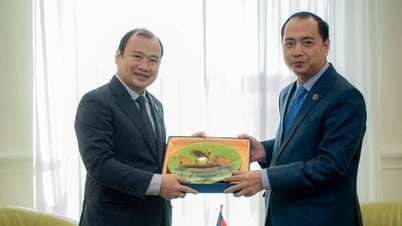
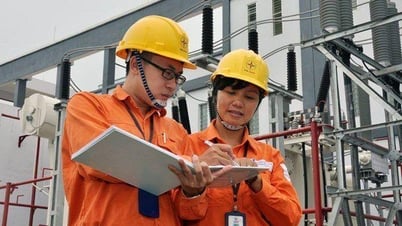



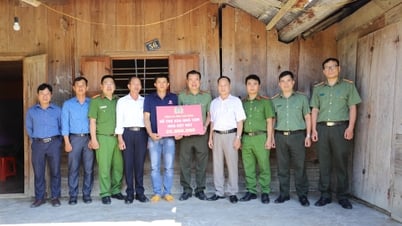

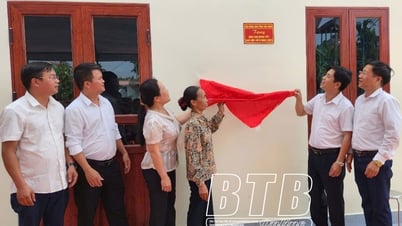

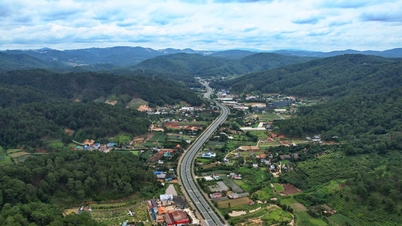

















Comment (0)